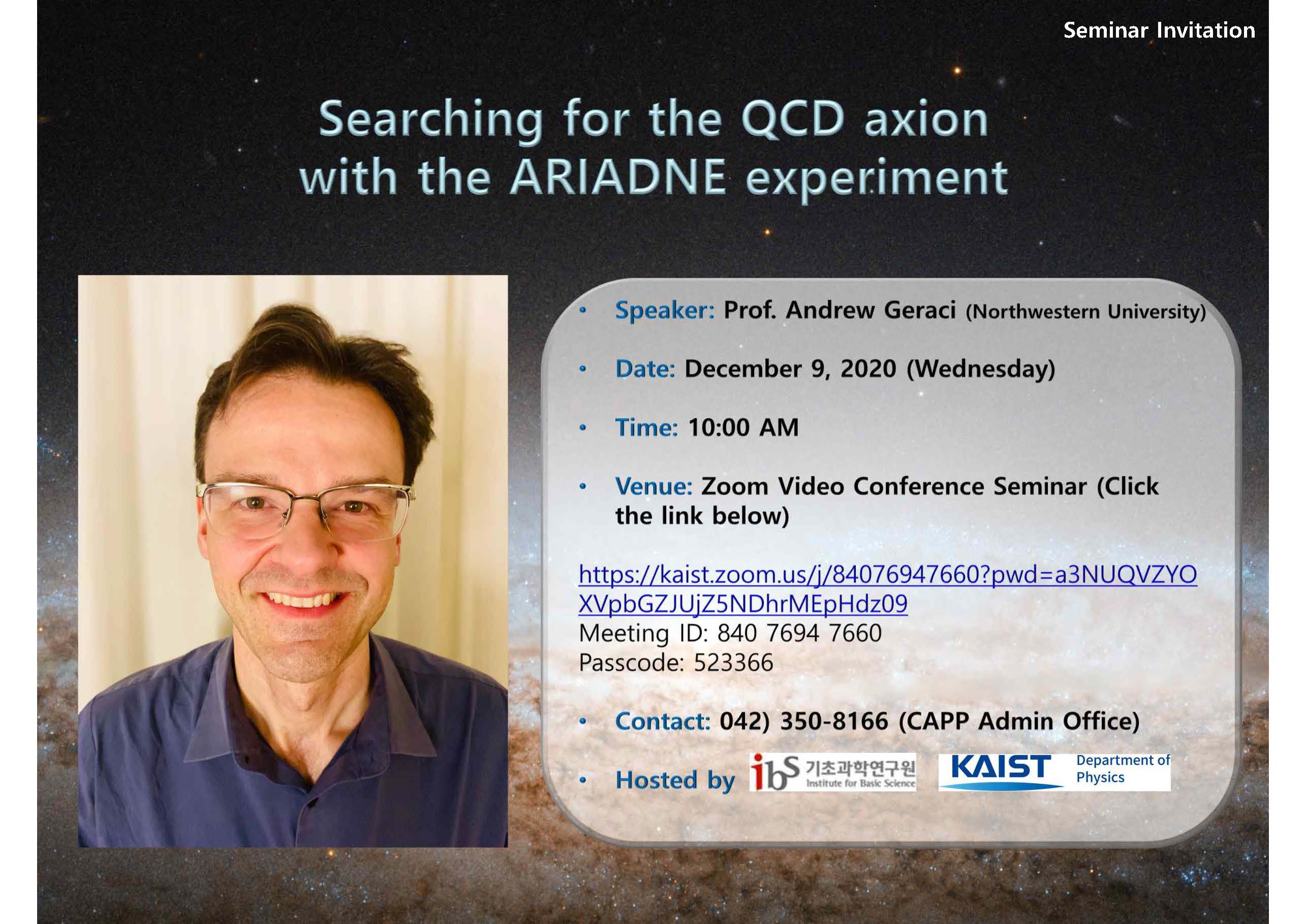Searching for the QCD axion with the ARIADNE experiment
2020.12.02 16:53
| 날짜 | 2020-12-09 10:00 |
|---|---|
| 연사 | |
| 장소 | Zoom |
Topic: Searching for the QCD axion with the ARIADNE experiment
Speaker: Prof. Andrew Geraci (Northwestern University)
Date: December 9, 2020 (Wednesday)
Time: 10:00 AM
Venue: Zoom Video Conference Seminar (Click the link below)
https://kaist.zoom.us/j/84076947660?pwd=a3NUQVZYOXVpbGZJUjZ5NDhrMEpHdz09
(Meeting ID: 840 7694 7660; Passcode: 523366)
Abstract
The QCD axion is a particle postulated to exist to explain the lack of Charge-Parity (CP) violation in the strong
interactions, and the associated unexpected smallness of the neutron electric dipole moment. It also happens
that the axion could constitute all or part of the Dark matter in the universe, thus making it an “economical”
solution to some of the greatest puzzles in cosmology and high-energy physics. While the focus in the
community has mainly been on cosmic axion searches, axions can also generate novel spin-dependent
short-range forces between nuclei in table-top experiments. The Axion Resonant InterAction Detection
Experiment (ARIADNE) is a collaborative effort to search for the QCD axion, using a technique based on nuclear magnetic resonance. The aim is to detect axion-mediated short-range interactions between laser-polarized
3He nuclei and an unpolarized tungsten source mass. The experiment has the potential to probe deep within the
theoretically interesting regime for the QCD axion in the mass range of 0.01-10 meV. In this talk I will discuss the basic principle of the experiment and the current experimental status.
CAPP Official YouTube Channel:
https://www.youtube.com/channel/UCt0PU7dgdRoXo0C3478EImw?view_as=subscriber








